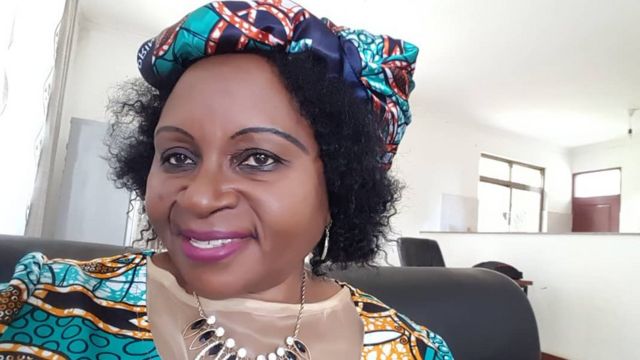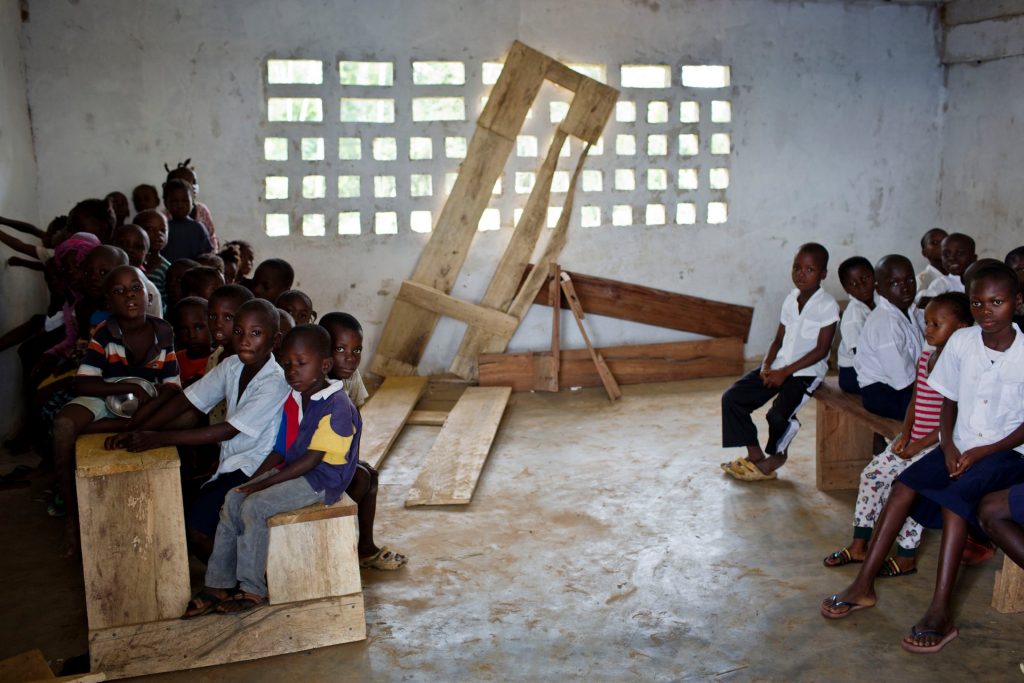
Verdiana Grace Masanja is the first woman to get a PhD in mathematics in Tanzania.
She was crowned the highest degree in the perceived ‘difficult and feared subject’ at a tender age of 33 in 1986 at the Technical University of Berlin (TUB).
This was a period when beliefs that fields in science, technology, engineering and mathematics (STEM) were a domain for men, were still very strong.
By that time, affirmative actions to help girls into STEM were insignificant or completely unheard of.
A girl who excelled during those days had to prove that she can perform extraordinarily, and the young Verdiana was amazingly the best, especially when it came to mathematics and physics.
She is currently a full Professor of Applied Mathematics at the School of Computational and Communication Science and Engineering, Nelson-Mandela African Institution of Science and Technology (NMAIST), in Tanzania since 1st February 2018 on a contract basis after retirement. Is mathematics difficult? I asked her during our interview.
“Mathematics is not difficult as is widely believed… the thinking is grounded on a wrong perception,” she notes, and further gave some explanations.
She says all children are potentially able to understand mathematics and that the seeming problems are not inborn, and that is why most standard one to three pupils love arithmetics but start to hate and fear the subject at later stages when they are introduced to algebra and geometry.
She posed a question: “Why a child vending different types of fruits in a street manages to sell and give change meticulously using his/her own devised mental calculation but fail in class when required to use mathematical concepts taught in class?”
According to the Professor, the problem on maths faces other nations as well, but there are unique reasons when it comes to Tanzania, one being that majority of primary school teachers do not comprehend well the subject themselves.
She proposes some solutions to some of the challenges the country face. First, selecting primary school teachers who like the subject and who are ready to learn again.
Since such teachers had earlier studied the subject up to Form IV, thorough review classes would suit them.
These reviews should aim at making sure that the selected teachers are well conversant with math syllabus up to Form Two level and understand all primary school math concepts and pedagogical methods.
“This can help empower these teachers who will, in turn, assist in imparting confidence and love to the subject to children in primary school level,” says the Professor, who is also fluent in English, good in German, and with working knowledge in French and Kinyarwanda languages apart from her native Kihaya and Kiswahili.
The Professor’s views are in line with the recently announced government’s strategy to improve mathematics.
Announcing the plan in early April, 2021 during the launch of a programme dubbed ‘Encourage Mathematical Learning and Teaching’ (KiuHISABATI) for Ubungo constituency, the Minister of State in the President’s Office, Regional Administration and Local Government (PORALG), Ummy Mwalimu revealed that from July this year, the government will launch a programme to improve performance that will comprise among other things, reviving Teachers’ Resouce Centres (TRCs), so that teachers can have a place to learn complex topics and exchange information and experience in teaching the subject.
KiuHISABATI is a brainchild of Ubungo Member of Parliament and the Minister for Industry and Trade, Prof. Kitila Mkumbo, who referred to mathematics as ‘the language of life and the world’ during the launch of the initiative.
Prof. Verdiana further pinpoints the number of maths teachers as the main problem at the secondary school level.
A limited number of teachers becomes so serious for the subject that is highly hierarchial-meaning that for a student to grasp a new concept, he/she must first be well acquainted with a previous one.
According to her, mathematics learning requires a learner to do many exercises. Apart from that, the subject has more periods than other subjects.
“Maths teachers are overloaded due to being few and also because they have to teach for more hours than other subjects.”
When work overwhelms teachers in schools and while parents cannot aid their children in mathematics at home (because many parents also failed and hate the subject), the consequence is always poor results.
The mathematics guru explains that treating all O-Level students with the same math curricula does not help matters.
Her advice is to have different curricula; one for those planning to opt for PCM, PCB, EGM combinations at A-level and those planning to venture in science and technology courses in the future and another curriculum for the rest.
At Form Three, students who will not opt for the above-noted STEM-based combinations courses at A-Level should revisit the forms one and two maths concepts, gain more depth with emphasis on their applications in real life.
“That will help students to love the subject, and be able to perform well and realize its application in life,” she notes, adding that an idea that mathematics is a difficult subject and not for women must be discouraged.
The wrong concept can be demystified by using mass media. Also, mathematical games can be used to encourage children to appreciate the beauty and need of mathematics in life right from the preparatory stages.
Prof. Verdiana is against flogging students because of failing to answer mathematics questions as this intensifies students’ hate toward mathematics.
“The problem is when teachers fail to impart mathematical concepts and end up whipping students. This should be stopped,” she notes.
She also advises on changing the examination format to help students understand mathematical concepts and gain knowledge rather than forcing them to cram in order to pass exams. Prof. Verdiana is the daughter of the late Ta Gaspar Rwehumbiza (Kalaiti) Kashaga.
Her paternal grandfather was Ta Ibrahim Kashaga Bishansha of Buhembe Bulibata. Her mother who turned 101 on 5th January 2021 is Ma Julitha Mukaruganyirwa Kalishmera, a daughter of Ta Arcard Kasabila of Nshambya Kasharazi.
She spent her childhood years in Nshambya Kasharazi at her maternal grandfather because her parents shifted from Kagera to Mwanza region for work.
She went for her preparatory school at Nshambya Ihyoro in 1958 when she was 5 and three months old.
After exactly one year, she started Standard One at Ihungo Primary School up to Standard Four in 1962.
She relocated to her parents in Mwanza where she attended Nyakabungo extended Primary School (now Milongo Primary School) in Mwanza town (1963-1966), then Chopra Secondary School (now Mwanza Secondary School) in Mwanza town for almost one year of Ordinary-level secondary education (1967) and Rosary College (now Nganza Secondary School) (1967-1970) for the remaining years of Ordinary-level secondary education.
Generally, the family she hails from is intellectually gifted. Because of his extraordinary ability, her father is on record to have spent fewer years in his primary/Seminary middle and secondary/Seminary higher-level education.
“I used to perform well in both science and arts subjects. I possessed several talents,” says Prof. Verdiana.
The young Verdiana could sing, compose songs, compose poetry, dance well, acting drama and could read a whole novel in a single day.
She was versatile. She wanted to become a medical doctor but it was not possible as she was selected to do Physics, Chemistry and Mathematics (PCM).
At that time only 23 girls in the whole of Tanzania were selected to do PCM which was offered only at Jangwani Girls High School in Dar es Salaam for girls. Prof. Verdiana was one of the 23 girls.
Actually, 10 of those 23 girls came from her O-level secondary school. She had earlier chosen a PCB stream.
She went to Jangwani Girls High School in Dar es Salaam for Advanced-level secondary education in 1971-1972 where she studied Mathematics, Chemistry and Physics.
From Jangwani Girls, Verdiana was admitted to the-then Faculty of Science (today’s College of Natural and Applied Sciences, CoNAS) at the University of Dar es Salaam (UDSM) for a three-year degree study programme running from 1973 to 1976.
She was recruited to remain and teach at the UDSM in the mathematics department. She has been in academic teaching for 45 years since April 1976, mostly working at UDSM, and at a professorial rank for 20 years since July 2000.
She also has been in Higher Education management since 1994 until 2017, of the 24 years in management, fourteen (14) years were in leadership at the level of Director (12 years) and Deputy Vice-Chancellor (2 years).
Prof. Verdiana has extensive international exposure. She has taught in various Universities in Tanzania, Rwanda, and as a part-time/ visiting professor in Finland, Kenya, and Uganda and in collaborative international programmes.
She has taught at undergraduate, masters, and PhD level, supervised postgraduate (masters and PhD) students, and she has been an external examiner in nine Universities in East and Southern Africa.
She has examined PhD and Masters Theses/ Dissertations in the Netherlands, India and in African universities and has chaired PhD viva-voce panels in various universities.
She has participated in accreditation processes of universities and academic Programmes in the capacity of an Institutional Auditor (even chair of some of the teams), and subject reviewer in Tanzania (1995 – 2000) and in Rwanda (2007 – 2017).
Prof. Verdiana also has gathered wide experience in gender research, gender interventions, and gender in STEM Education (primary, secondary and higher education levels).
She is a member and has been a leader of national and international organisations and has widely published, conducted high-level consultancies, and has initiated and managed collaborative academic, research, and gender projects and programmes.
She has participated in over 70 international scientific and world important conferences in over 50 countries, and this includes UN World Conferences (on Science, Women, Gender, and Education). Notably, she was nominated in 1999 by the then UNESCO Secretary-General Federico Mayor as one of the eminent Scientists of Africa to attend the World Science Conference in Budapest, and in 2007 she was invited as one of the eminent scientists of Africa to make a presentation at the pre-CHOGM Science Conference in Mbarara Uganda. She has chaired organising committees or scientific committees of more than 20 conferences and she has been keynote/ invited speaker in 27 conferences.
Prof. Verdiana is encouraging youth to love and strive to perform well in mathematics. According to the analysis she did in January this year, over 90 per cent of tertiary institutions and universities around the world require a credit pass mark (i.e C) for admission.
“Let the youth be aware that by failing mathematics, they automatically close their doors by 90 per cent toward courses that attract many opportunities in the world today and in the future,” she notes. She has a word of advice to girls: “They should embrace mathematics.
Different studies have shown that boys and girls understand math concepts equally well. Girls are as smart as boys.”

